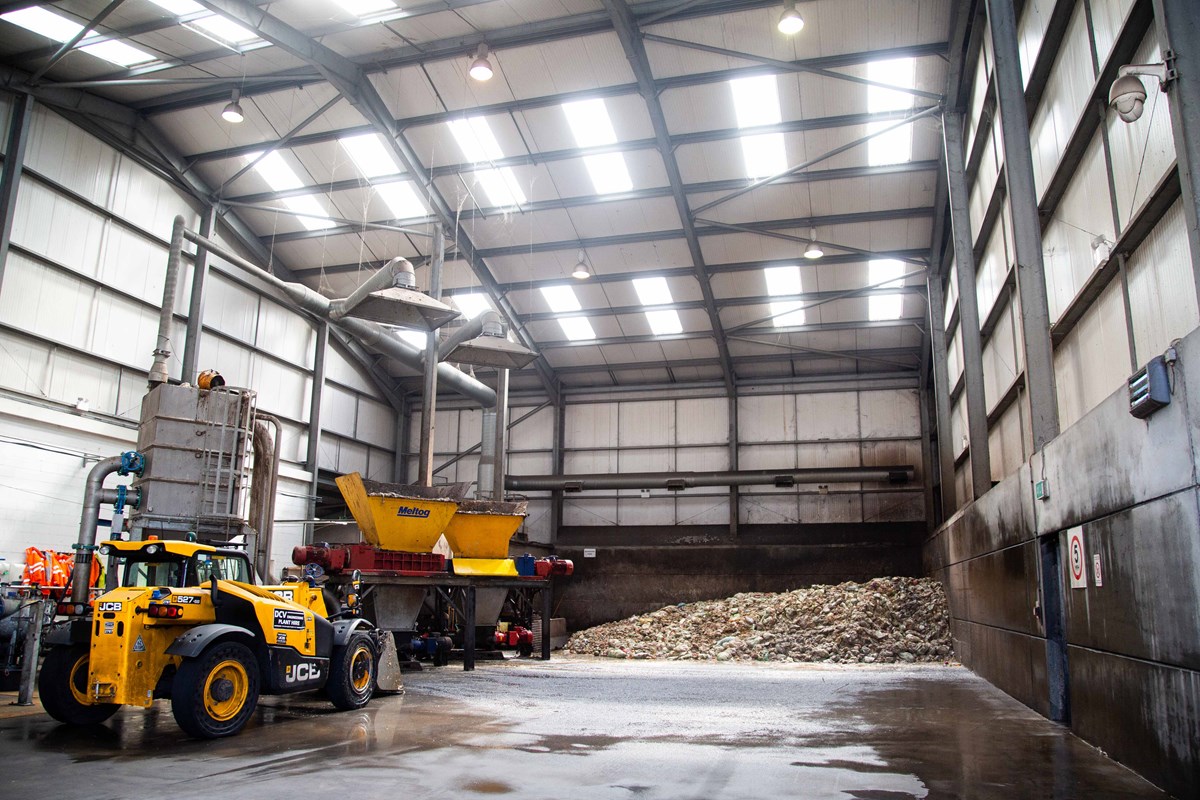Recycling Visit April 2022 small jpeg-100
Councils in Wales send their food waste to an anaerobic digestion plant, like this one in Rhondda Cynon Taf. Food waste, one of the biggest areas of global focus to limit climate change, has been collected separately across Wales for the last decade. When sent to landfill, hot and compressed conditions convert food waste into methane gas, which is 30 to 80 times more damaging as a greenhouse gas than carbon dioxide. Through anaerobic digestion, methane gas is captured and turned into energy, meaning less fossil fuels to heat peoples homes and less methane created in landfill that accelerates climate change.

